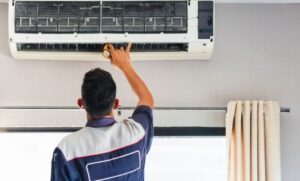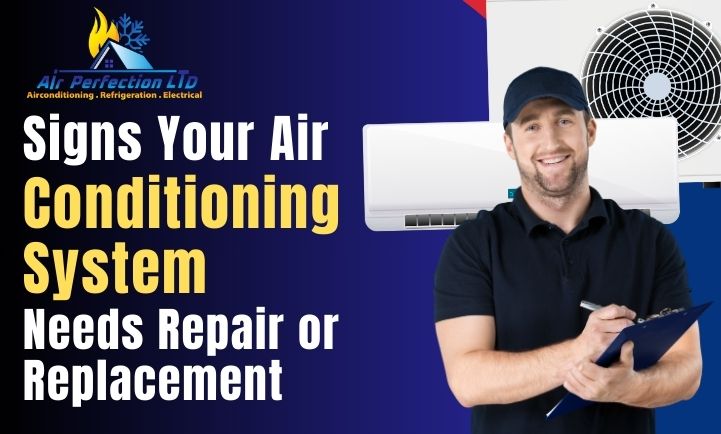A reliable air conditioning system is crucial for maintaining a comfortable environment in your home, especially during the peak of summer. However, even the best systems can face issues over time. Recognizing the signs that your air conditioning system needs repair or replacement is essential for avoiding uncomfortable breakdowns and expensive repairs. Here’s a comprehensive guide to help you identify when your AC unit requires professional attention.
Decreased Airflow
Description of the Issue
One of the most noticeable signs of a problem with your air conditioning system is decreased airflow. If you find that your AC isn’t blowing as strongly as it used to or if the air coming out feels weak, this can significantly impact your system’s ability to cool your home effectively.
Possible Causes
- Clogged Filters – Air filters can accumulate dust and debris over time, restricting airflow and causing your system to work harder to push air through.
- Blocked Vents – Furniture, curtains, or other objects blocking vents can obstruct airflow, leading to uneven cooling throughout your home.
- Blower Issues – The blower motor or fan might be malfunctioning or damaged, reducing the system’s ability to circulate air.
Action to Take
Start by checking and replacing air filters if they appear dirty or clogged. Ensure that vents and registers are clear of obstructions. If the airflow issue persists, it may be necessary to have a professional inspect the blower and ductwork to identify any underlying problems.
Strange Noises
Types of Noises and Their Meanings
Strange noises coming from your air conditioning system can be a clear indicator of a problem. These noises often signal that internal components are malfunctioning or that there’s a mechanical issue.
Possible Causes
- Hissing – A hissing noise could indicate a refrigerant leak, which can lead to decreased cooling efficiency and potential damage to the compressor.
- Banging or Rattling – Banging or rattling noises may be due to loose or damaged components, such as the fan blades, motor mounts, or compressor.
Action to Take
If you hear unusual noises, it’s crucial to address them promptly. Turn off your system and contact a technician to diagnose and repair the issue. Ignoring these noises can lead to more severe damage and costly repairs.
Frequent Cycling
Description of the Issue
Frequent cycling refers to your air conditioner turning on and off more often than usual. This short-cycling can lead to reduced efficiency, increased wear on the system, and higher energy bills.
Possible Causes
- Thermostat Problems – A malfunctioning thermostat might cause your system to cycle on and off erratically. This could be due to a faulty sensor or calibration issues.
- Dirty Coils – Dirt and debris on the evaporator or condenser coils can impair heat exchange, causing the system to work harder and cycle frequently.
- Capacitor Issues – The capacitor helps start and run the compressor and fan. If it fails, your system may cycle more frequently or struggle to start.
Action to Take
Check and calibrate your thermostat to ensure it’s functioning correctly. Clean the coils and ensure they are free from debris. If the issue persists, consult a technician to inspect the capacitor and other internal components.
Poor Temperature Regulation

Description of the Issue
If your air conditioner struggles to maintain the desired temperature or if you notice significant temperature differences between rooms, it could indicate a problem with your system.
Possible Causes
- Faulty Thermostat – An inaccurate thermostat may not properly regulate the temperature, leading to inconsistent cooling.
- Refrigerant Issues – Low refrigerant levels or leaks can affect the system’s cooling capacity and efficiency.
- Inadequate System Size – An undersized air conditioning system may not effectively cool your home, particularly during peak demand periods.
Action to Take
Calibrate the thermostat to ensure it accurately reflects the temperature in your home. Check refrigerant levels and address any leaks. If your system is undersized for your home, consult a professional to evaluate the need for an upgrade to a more appropriately sized unit.
High Energy Bills
Description of the Issue
A sudden spike in energy bills without a corresponding increase in usage can be a sign that your air conditioning system is no longer operating efficiently.
Possible Causes
- Inefficient Operation – As systems age, they may become less efficient, leading to higher energy consumption.
- Worn-Out Components – Components such as the compressor or fan motor may become less effective over time, causing the system to work harder.
- Ductwork Leaks – Leaks in the ductwork can lead to significant energy loss, as conditioned air escapes before reaching its destination.
Action to Take
Schedule regular maintenance to ensure your system operates efficiently. Address any ductwork leaks by having a professional inspect and seal them. If high energy bills continue, evaluate whether it’s more cost-effective to repair or replace your unit.
Foul Odors
Description of the Issue
Unpleasant odors emanating from your air conditioning system can be a sign of underlying problems that need attention.
Possible Causes
- Mold or Mildew – Mold or mildew growth in the system or ductwork can produce musty, unpleasant smells.
- Burnt-Out Components – Electrical issues or burnt-out components can cause a burning smell.
- Debris – Accumulated debris in the system can emit foul odors when heated.
Action to Take
Clean your system and address any mold or mildew issues promptly. For persistent odors, contact a professional to inspect the system for potential electrical problems or burnt components.
System Age and Performance
Description of the Issue
The age of your air conditioning system can significantly impact its performance and efficiency. Older systems may struggle to meet your cooling needs effectively.
Signs of Aging
- Frequent Repairs – Older systems may require more frequent repairs as components wear out.
- Reduced Efficiency – An aging unit may operate less efficiently, leading to higher energy bills and decreased cooling performance.
- Outdated Technology – Older systems may lack modern, energy-saving features that improve efficiency and comfort.
Action to Take
If your system is nearing the end of its expected lifespan, consider evaluating the benefits of upgrading to a newer, more energy-efficient model. A professional can help assess whether repairing or replacing the unit is the best option based on its age and condition.
Conclusion
Recognizing the signs that your air conditioning system needs repair or replacement is essential for maintaining comfort and efficiency in your home. By paying attention to issues such as decreased airflow, strange noises, frequent cycling, poor temperature regulation, high energy bills, foul odors, and system age, you can take proactive steps to address them.
Regular maintenance and timely repairs can help extend the life of your AC unit, but when it’s time for a replacement, investing in a new, energy-efficient system can offer significant benefits. For expert assistance with your air conditioning system, contact Air Perfection today. Our skilled technicians are ready to ensure your home stays cool and comfortable all year round.






